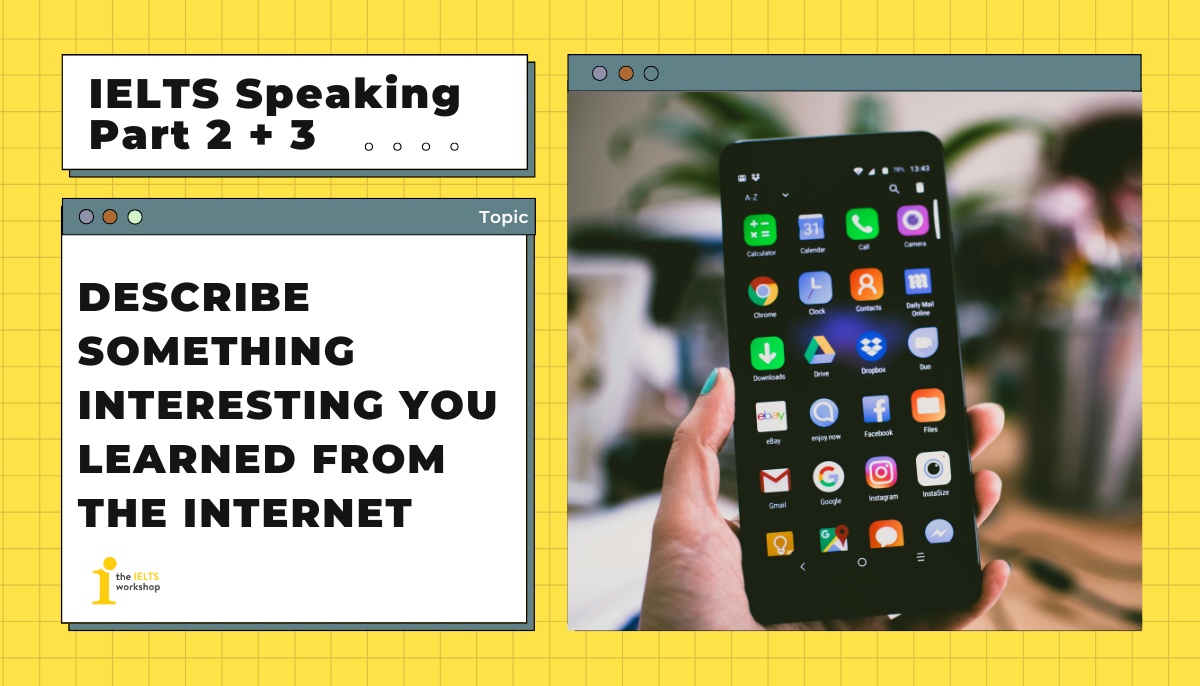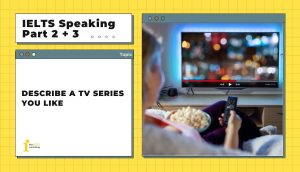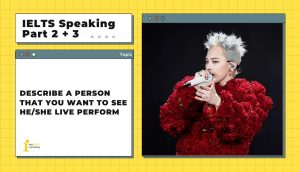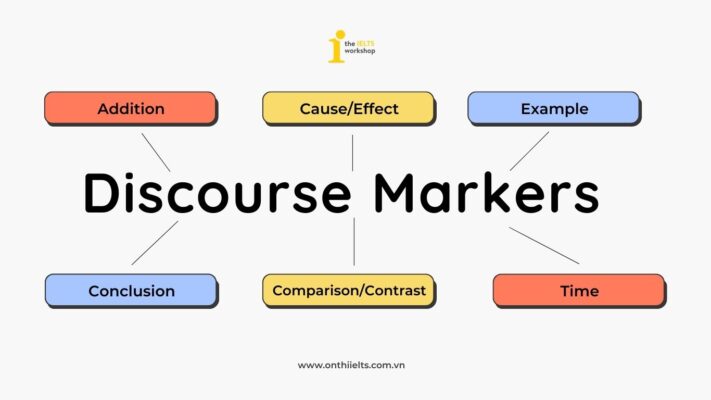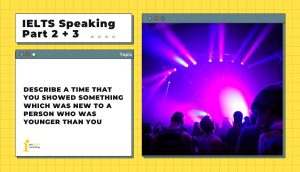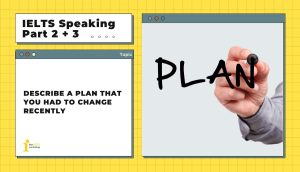Trong bài giải mẫu lần này, thầy Nam Phạm và thầy Hoàng Hưng của The IELTS Workshop sẽ hướng dẫn bạn trả lời topic “Describe something interesting you learned from the internet“ trong IELTS Speaking Part 2. Cùng tham khảo sample, từ vựng và một vài cách diễn đạt ghi điểm trong phần thi IELTS Speaking nhé.
Part 2: Describe something interesting you learned from the internet
Describe something interesting you learned from the internet
You should say:
What you learnt?
What website did you learn it from?
How you learnt it?
And explain why you think it was interesting
Dưới đây là bài mẫu cho topic “Describe something interesting you learned from the internet“.
1. Bài mẫu (Sample)
Sample 1:
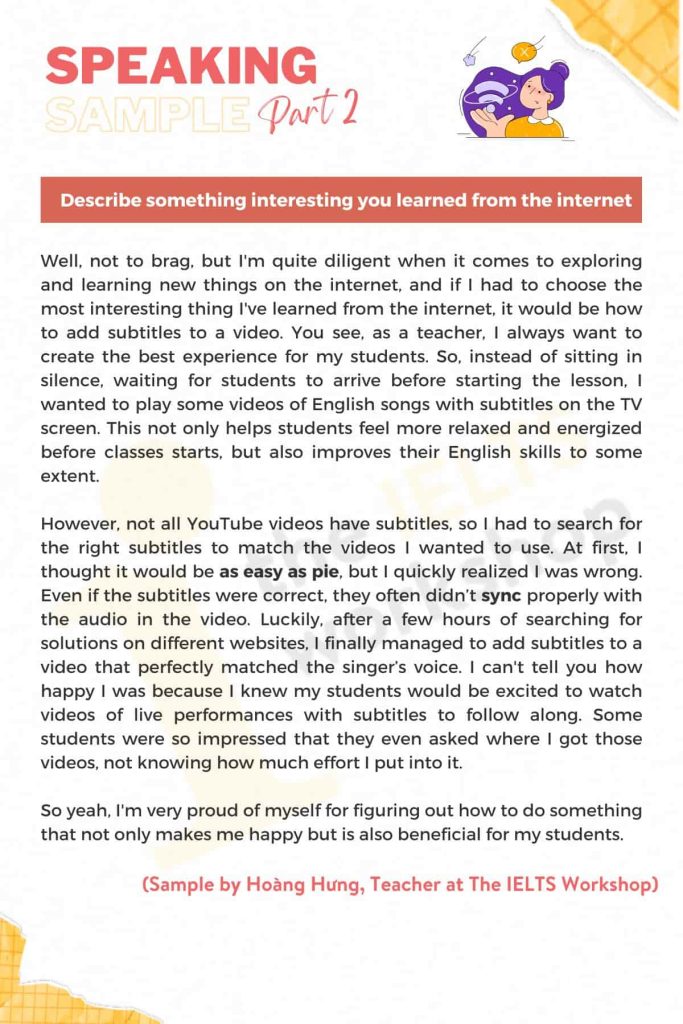
Sample 2:
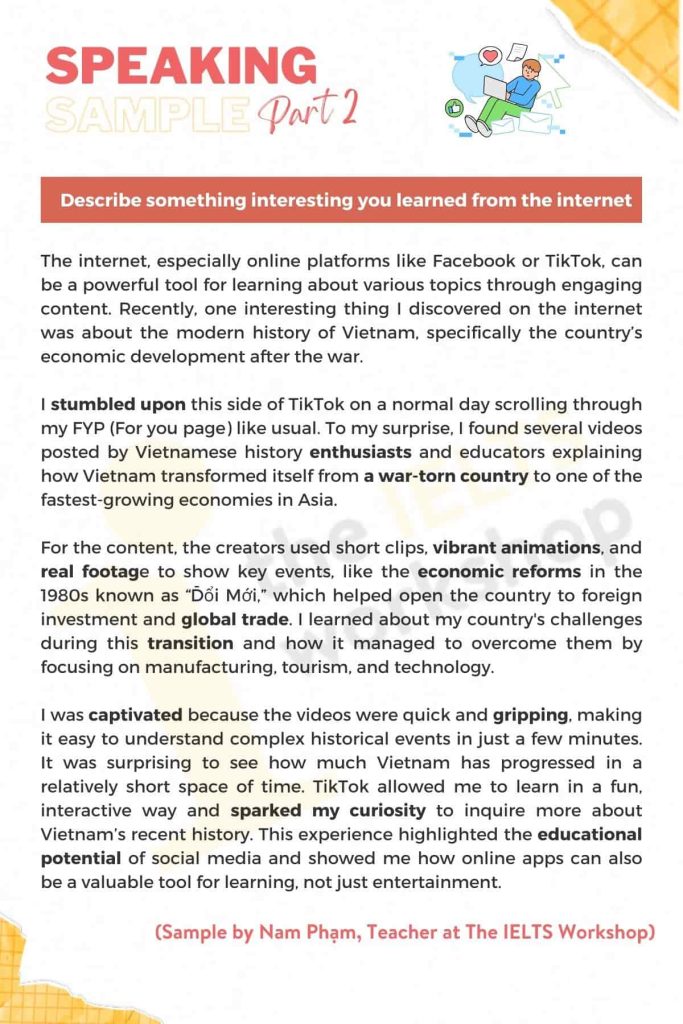
2. Từ vựng (Vocabulary)
Sample 1:
- as easy as pie (adj): dễ như ăn bánh
- sync (n): khớp
Sample 2:
- stumbled upon: tình cờ bắt gặp điều gì đó một cách không ngờ
- enthusiast: người rất yêu thích và nhiệt huyết với một thứ cụ thể
- a war-torn country: quốc gia bị ảnh hưởng nặng nề do chiến tranh
- vibrant animation: hoạt hình sống động
- real footage: những thước phim thực tế
- economic reforms: cải cách kinh tế
- global trade: thương mại toàn cầu
- transition: quá trình chuyển đổi
- captivated: bị cuốn hút, thu hút mạnh mẽ
- gripping: hấp dẫn, thú vị
- sparked one’s curiosity: khơi dậy sự tò mò của ai đó
- educational potential: tiềm năng giáo dục
Part 3:
Bên cạnh Part 2, bạn hãy tham khảo thêm Part 3 cho chủ đề này nhé
Do older people have a hard time learning new things?
How do they learn new things?
Do you think the government should invest in education for elderly people?
Do you think it is good to invest in finance for the elderly or the young?
1. Do older people have a hard time learning new things?
Sample 1: Absolutely, older people often face challenges when learning new things. The main reason is that their cognitive abilities, especially memory and problem-solving, tend to decline with age, which can make it harder for them to absorb new information or pick up new skills as quickly as younger people. Additionally, older people are often less exposed to learning environments that are evolving rapidly, making new methods of teaching or learning feel unfamiliar or uncomfortable. For instance, online learning platforms may be difficult for them to navigate if they’ve never used computers extensively before.
- absorb new information: tiếp nhận kiến thức mới
- less exposed to: ít được tiếp xúc với
Sample 2: Yes, elders often find it more challenging to pick up new concepts compared to younger people. This can be due to various factors, such as a decline in memory and slower cognitive processing due to aging, or a lack of familiarity with new technology. However, it also depends on their mindset and willingness to learn; some older adults are very open to new experiences and continue to learn effectively while others can be quite reluctant while comprehending new knowledge.
- pick up: học hỏi, tiếp thu
- cognitive processing: xử lý nhận thức
- willingness to learn: sự sẵn sàng học hỏi
- reluctant: miễn cưỡng, không sẵn lòng
2. How do they learn new things?
Sample 1: Well, I suppose the best way for older peple to learn new things is through hands-on experience and practical application, instead of absorbing theoretical information. For instance, when learning how to use a smartphone, an elderly person might grasp the concept better by actually using the device and experimenting with its features, rather than simply reading about it or watching tutorials. Moreover, elderly people tend to benefit from patient instruction and repetition. Unlike younger learners, who might quickly grasp new ideas, elderly people often need information to be repeated several times to fully understand and remember it.
- hands-on experience: kinh nghiệm thực tế
- grasp the concept: hiểu được khái niệm
Sample 2: Older people often learn new things through methods tailored to their needs, such as hands-on practice or step-by-step instructions from others. They may prefer face-to-face learning environments, like community classes or workshops, where they can interact directly with others instead of learning through online sources and tutorials like youngsters nowadays. Additionally, having a dedicated and patient instructor who can make their learning content accessible could also be a great way to help elders retain information more effectively.
- tailored to one’s needs: được điều chỉnh phù hợp với nhu cầu của ai đó
- hands-on practice: thực hành thực tế
- step-by-step instructions: hướng dẫn từng bước
- accessible: dễ tiếp cận
- retain information: lưu giữ thông tin
3. Do you think the government should invest in education for elderly people?
Sample 1: Without a doubt, and there are several reasons to do so. First, such investments can promote lifelong learning, which keeps the elderly mentally active and socially engaged. Education for seniors could include technology classes, language learning, or even health management courses, all of which can help them stay connected with family and society.
For example, learning to use social media or video calls enables older people to maintain relationships with distant family members. Second, providing educational opportunities for seniors improves their quality of life. Through learning, they can gain essential skills to enhance their independence, such as managing their finances or accessing healthcare services online. This, in turn, reduces their reliance on others and empowers them to make informed decisions.
- lifelong learning: việc học lâu dài, cả đời
- enhance their independence: giúp họ tự lập hơn
Sample 2: Yes, I believe the state should allocate more funds toward educational programs for elders. Providing educational opportunities for older residents can help them stay mentally active, socially connected, and independent for longer, enabling them better chances to manage their health, finances, and daily tasks. It would also allow them to contribute more to society by learning and sharing their newly acquired knowledge among the young. This can be done by promoting environmental awareness through tree planting activities and beach clean-ups or teaching others useful skills like knitting, cooking, or gardening.
- allocate more funds: phân bổ thêm nguồn lực tài chính
- stay mentally active: duy trì sự năng động về mặt trí óc, tinh thần
- enabling: tạo điều kiện
- promoting environmental awareness: thúc đẩy nhận thức về môi trường
4. Do you think it is good to invest in finance for the elderly or the young?
Sample 1: From my point of view, it is important to invest in both the elderly and the young, though the focus might differ depending on long-term goals. Investing in the elderly is essential for ensuring their financial security, particularly as they enter retirement. You know, many older people can rely on pensions, healthcare, and social welfare programs to cover their living expenses.
On the other hand, investing in the younger generation is crucial for the long-term growth of the economy. By focusing on education and skills development for young people, governments are essentially building a stronger workforce for the future, which benefits society as a whole in the long run. Therefore, a balanced approach, with targeted investments in both demographics, is likely to yield the best results.
- differ: khác nhau
- cover their living expenses: trang trải các chi tiêu hằng ngày
- yield the best results: tạo ra kết quả tốt nhất
Sample 2: Both groups can benefit from financial investment, but it depends on the specific needs and priorities of a society. Investing in the youth is essential for ensuring a skilled and competitive workforce in the future, fostering innovation, and driving economic growth. On the other hand, focusing on the welfare of the aging population is equally essential, as it ensures a decent quality of life for those who have spent their lives contributing to society. As a result, it would be ideal if we could draw up an approach that addresses the needs of both the younger and older demographics.
- financial investment: đầu tư tài chính
- skilled and competitive workforce: lực lượng lao động có tay nghề và khả năng cạnh tranh
- fostering innovation: khuyến khích sự sáng tạo, đổi mới
- driving economic growth: thúc đẩy tăng trưởng kinh tế
- welfare: phúc lợi
- draw up an approach: xây dựng, đưa ra một cách tiếp cận
Bài mẫu bởi thầy Hoàng Hưng và thầy Nam Phạm – Giáo viên The IELTS Workshop
Trên đây là bài mẫu cho topic: Describe something interesting you learned from the internet. Các bạn có thể tham khảo Bộ đề dự đoán IELTS Speaking quý 3/2024 của The IELTS Workshop tại đây!
Ngoài ra, khoá học Senior của The IELTS Workshop sẽ giúp bạn nâng cao kỹ năng cũng như xây dựng chiến lược trả lời câu hỏi, tham khảo ngay nhé!!


